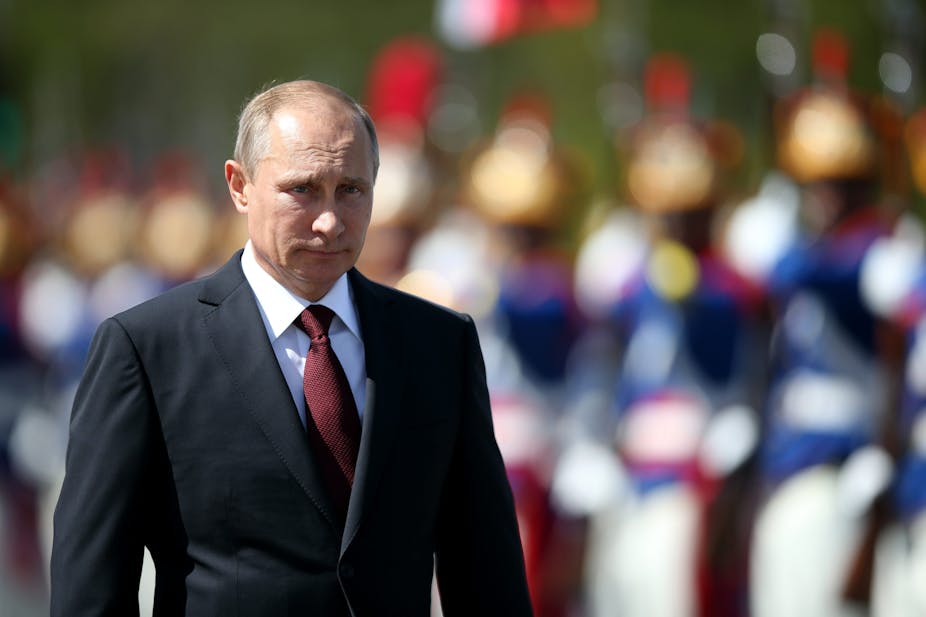It remains to be seen precisely how and why the Malaysia Airlines Flight MH17 crashed over the territory of the self-proclaimed “Donetsk People’s Republic” in eastern Ukraine on Thursday. But whatever the outcome, almost 300 lives have been lost as part of a piece of political theatre which now looks more like a crushing tragedy.
The most recent reports indicate that it is plausible the civil airliner flying between Amsterdam and Kuala Lumpur was mistaken for a Ukrainian military transport plane and shot down by DNR (the Russian acronym) forces using a BUK vehicle-mounted medium range surface to air missile system. That was likely to have been captured from Ukrainian government forces earlier in the conflict or procured, no doubt circuitously, from the Russian military.
Several Ukrainian military aircraft have been shot down in recent weeks including two planes downed earlier this week. Equally, it seems unlikely that government forces would have fired such a missile as Ukrainian forces dominate the skies and the DNR does not currently possess air power. It is also difficult to imagine the Russian military would have any incentive to shoot down a civilian airliner. The Ukrainian government claims to have “intercepts” linking the DNR to the downing of the jet and it has been claimed that the DNR announced shooting down the plane on social media feeds before later deleting them.
Terror language
In keeping with the framing of the government’s attempt to liberate DNR territory as an “Anti-Terrorism Operation”, popularly known as the ATO, the newly-elected billionaire Ukrainian president, Petro Poroshenko, called the downing of the plane an act of terrorism. While the indiscriminate killing of civilians is indeed terrorism, the three-month old conflict in the Donetsk and Luhansk oblasts is more accurately understood as the first proxy war in a new cold war between Russia and the West.

The war was initiated by the West’s support for the overthrow of a flawed, yet democratically elected, president Viktor Yanukovych who refused to submit to western powers who would not countenance tri-lateral negotiations between Russia, Ukraine and the EU to establish the country’s status. Yanukovych was succeeded by an interim president and government which signed a political association agreement with the EU and accepted financial aid from the US. That enabled them to stage a pre-term presidential election which resulted in the election of the pro-western oligarch Poroshenko who promptly signed an economic association agreement with the EU.
In spite of the western assistance, the violent overthrow of Yanukovych, who fled to Russia resulted in profound power vacuums in those regions controlled either by Yanukovych’s Party of the Regions or by his personal networks – the so-called “family”. The presence of the 30,000 strong Russian Black Sea Fleet in Crimea combined with a local elite happy to ally with Russia resulted in the region’s peaceful incorporation in to the Russian Federation after a referendum in March. There was an even greater power vacuum in Yanukovych’s home region of Donetsk Oblast where the “family” effectively controlled the region. Russia used the disappearance of the family, popular anti-Kiev sentiment and the weakness among the region’s political and commercial elites to initiate the so-called “Russian Spring”.
Power games by proxy
However, the failure to cultivate popular pro-Russian mass mobilisation and the reluctance of the Donetsk region’s elite to ally with Russia resulted in a weak de facto occupation of the region by increasingly well-armed rebels. While Russia sought a genuine ceasefire to separate Donetsk and the Luhansk oblasts from the rest of Ukraine, the West urged Poroshenko to fight to liberate the occupied parts of the two oblasts. As Ukrainian forces overwhelmed the rebels in government strongholds in the north of Donetsk province, the DNR’s demands for more direct support from Russia grew. The result is a war between Russia and the west through its proxies, the DNR and Ukrainian government respectively.
The West’s support for the overthrow of Yanukovych unbalanced Russia. It reconstituted Russia as an anti-western revanchist power prepared to ignore international law as in the annexation of Crimea. It also made Russia focus even more keenly on its national security not least by reducing dependence on Ukraine and other countries for procuring military technology and equipment. Russia has even begun to develop its own financial payments system to reduce its reliance on US financial and technology companies. It also even revived Russia’s multilateral diplomatic efforts to build non-western centres of power – such as the Eurasian Union and BRICS development bank – to challenge North American and European hegemony.
The only way to stop further unintended consequences of this proxy war in eastern Ukraine, like the tragic downing of MH17, is for the West and Russia to negotiate a new bargain in which they share influence in Ukraine and agree its status between their respective centres of power.

